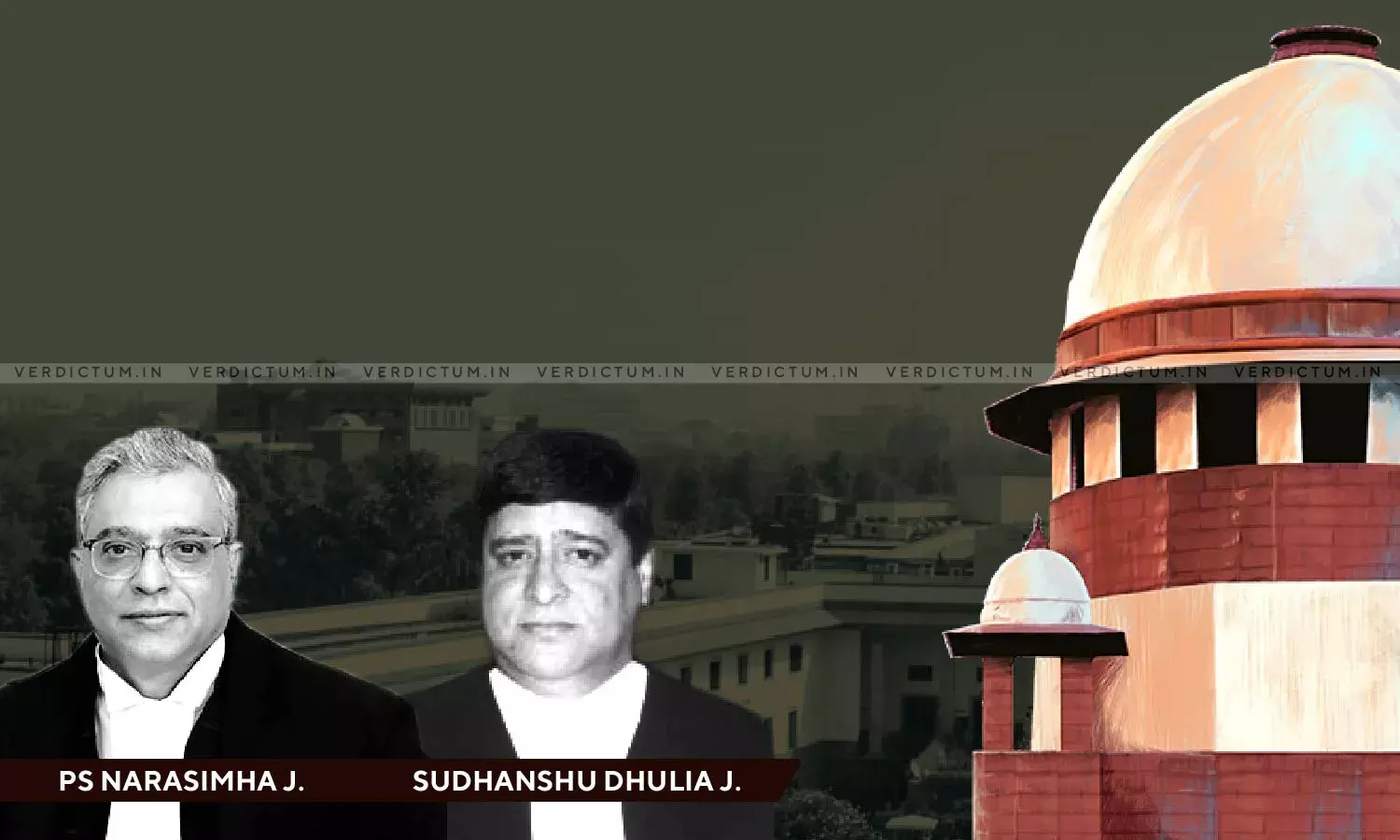Plaint Cannot Be Rejected Partially Under Order VII Rule 11 Of CPC: Supreme Court Reiterates

The Supreme Court reiterated that a plaint must be either accepted or rejected in its entirety and cannot be rejected in part in an application under Order VII Rule 11 of the Civil Procedure Code (CPC).
The Court allowed the Civil Appeal challenging the order of the High Court whereby the plaint filed under Order VII Rule 11 of the CPC was partly rejected related to Schedule A property. The Court emphasized that the High Court’s approach, prejudging the legality and validity of the disputed sale deed under which the Respondents were claiming title, was incorrect and contrary to established principles.
The Bench comprising Justice P.S. Narasimha and Justice Sudhanshu Dhulia observed, “There is yet another reason why the judgment of the High Court is not sustainable. In an application under Order VII Rule 11, CPC a plaint cannot be rejected in part”.
“The High Court committed an error by examining the merits of the matter. It pre-judged the truth, legality and validity of the sale deed under which the Defendants No. 4 to 14 claim title. This is not to say that the Plaintiffs have any less burden to prove their case or even that their case is probable. Simply put, the High Court could not have anticipated the truth of the averments by assuming that the alleged previous sale of the property is complete or that it has been acted upon”, the Court noted.
Advocate P V Yogeshwaran appeared for the Appellants and Advocate S. Nandakumar appeared for the Respondents.
The Plaintiffs and First to Third Defendants were members of a joint family owning properties listed in schedules A and B. The Karta of the family, late Shri Munivenkata Bhovi, owned many properties and would temporarily mortgage them to raise finances by executing 'nominal sale deeds'. When the Plaintiffs asked for partition, initially, the Defendants did not deny it. Instead, only two Defendants asked the Plaintiffs to wait until the revenue records were updated. Therefore, the Plaintiffs filed a plaint for partition and separate possession.
The High Court allowed the application under Order VII Rule 11, CPC in part, and rejected the Plaint concerning schedule-A property because the Plaintiffs did not produce any evidence to challenge the Sale Deed from 1919 and did not seek any declaratory relief against it. Appellant argued that the High Court committed an error in allowing the Revision and consequently, the application under Order VII Rule 11, CPC. However, Respondents supported the reasoning and conclusion of the High Court. Aggrieved, the Appellants approached the Supreme Court by way of Civil Appeal challenging the order of the Karnataka High Court.
The Bench ascertained the following issues:
“The first relates to the true and correct application of the principle underlying the ‘rejection of plaints’ under Order VII Rule 11, Code of Civil Procedure, 1908, to the facts of the case. The second question relates to the legality of rejection of a plaint in part”.
The Court emphasized that the first step in evaluating a plaint is to read it thoroughly and in its entirety, assuming it to be true. If the plaint discloses a cause of action after such a reading, then any application made under Order VII Rule 11 of the Civil Procedure Code (CPC) must be dismissed. To state it in negative terms, if a plaint fails to disclose a cause of action, it shall be rejected, the Bench noted while referring to the case of Dahiben v Arvindbhai Kalyanji Bhanusali [(2020) 7 SCC 366].
“In simple terms, the true test is first to read the plaint meaningfully and as a whole, taking it to be true. Upon such reading, if the plaint discloses a cause of action, then the application under Order VII Rule 11 of the CPC must fail. To put it negatively, where it does not disclose a cause of action, the plaint shall be rejected”, the Bench observed.
The Court noted that, if the plaint is deemed to be true then, the joint family properties could benefit its members and be available for partition. However, this can only be determined through a trial, and the outcome will depend on the evidence presented by the Plaintiff.
The Bench in this context noted, “At this stage, we are not concerned with the correctness of the averments, except to state that the Plaintiffs have the carriage of the proceedings, and have to discharge the heavy burden of proving their case. In so far as the application under Order VII Rule 11 of CPC is concerned, this Court will proceed only that far, to examine whether the plaint discloses a cause of action, and no further”.
The Court observed that the High Court’s approach was incorrect and contrary to the well-entrenched principles laid down in the case of Madhav Prasad Aggarwal v Axis Bank Ltd [(2019) 7 SCC 158] for considering an application under Order VII Rule 11, CPC.
Accordingly, the Court allowed the Appeal, set aside the impugned order, and directed the Trial Court to dispose of the original suit expeditiously.
Cause Title: Kum. Geetha v Nanjundaswamy & Ors. (2023 INSC 964)

